Hi folks. Thanks for reading my voter guide and for taking your voting responsibility seriously!
I cannot WAIT to throw Orange Julius out of the White House. I hope you are donating and volunteering and doing everything you can to take back our government at all levels. If you haven’t heard of the Sawbuck Patriots, check them out and join if you can. The members donate $10 or more every day to liberal candidates around the country with a path to victory, and whose campaigns will increase voter registration, education and turnout. Its efforts like theirs that are really making a difference in this election.
I’ve been hearing a lot of angst out there about how certain Democratic candidates fall short on this issue or that. I would like to direct you to a meme I just saw on social media:
Please keep that in mind while you study the California measures as well.
The California ballot isn’t especially long, but it is especially difficult. There are 12 statewide measures, 11 of them are very complex and many of them were very hard calls. You’ll find lots of lessons in here about California’s electoral past because many of the measures support or overturn previous measures, so understanding the history is critical to making an informed decision.
And I want to warn you: none of these measures are perfect. I’m holding my nose on several of these recommendations because of the way they were drafted. But remember: your vote is not a valentine. If you would rather wait for perfect laws, or perfect candidates, you will be waiting a very long time.
Before we begin, I should clarify that the opinions I express in this voter guide are my own, and should not be attributed to my employer, my adorable toddler, or any of the many Democratic clubs I belong to. Please send all hate mail to me at info (at) votealix.com.
In the interest of full disclosure, I’m a single mom, a liberal Democrat attorney and a government nerd, whose passions include arts and culture, getting more women elected to public office, and protecting our environment for future generations. I’ve worked on more political campaigns than I can count, including my own, and I also like long walks on the beach.
Here are my recommendations for the California ballot, with detailed explanations below:
Prop 14 – Bonds to continue funding for stem cell research – No?
Prop 15 – Changing tax assessment of commercial property to fund schools and local government services – YES!
Prop 16 – Bring back affirmative action – YES
Prop 17 – Restoring voting rights to parolees – YES
Prop 18 – Give some 17 year olds the right to vote – YES
Prop 19 – Property tax adjustment for seniors, disabled, victims of wildfire or natural disasters – Yes?
Prop 20 – Restrict parole for certain non-violent offenders – NO!!!!
Prop 21 – Expands local government authority over rent control – Yes?
Prop 22 – Employment status of gig economy drivers – YES!
Prop 23 – Regulation of kidney dialysis clinics – NO!!!!
Prop 24 – Amending consumer privacy laws – NO
Prop 25 – Eliminate cash bail – YES!
Prop 14 – Bonds to Continue Funding Stem Cell Research – No?
This was a tough one for me. It’s a $5.5 billion (with a B!) bond measure that will fund critical stem cell research and treatments for Alzheimers and dementia, among other terrible diseases and injuries. But – now? Really? During an unprecedented economic meltdown? Great cause, but bad timing.
First, some background. Stem cells are those early embryonic and certain mature cells that can produce a range of human tissues, and which are being studied for their potential to cure chronic disease and repair serious injuries. In the past there has been controversy around stem cell research because abortion opponents believed it was unethical to extract human cells from embryos, and they were able to convince the Bush administration to prohibit federal funds from being used for such research.
In 2004, California took a stand for this kind of medical research by passing Proposition 71, which issued $3 billion in bonds to fund California Institute for Regenerative Medicine (CIRM), and established a state constitutional right (!) to conduct stem cell studies.
Fast forward to 2019, when CIRM is running out of money. In July of last year, CIRM suspended applications for new projects, and as of October 2019, CIRM had only $132 million in funds remaining out of the original $3B.
This year, CIRM supporters placed Prop 14 on the ballot to authorize $5.5 billion in state general obligation bonds to fund CIRM, and add a few more requirements. Prop 14 would make sure that CIRM is spending at least 92.5% of the bond revenues on grants to entities conducting research, trials and programs. $1.5 billion of the bond revenues will go toward therapies and treatments for brain and nervous system diseases, such as Alzheimer’s, Parkinson’s, and dementia.
Critics of CIRM say that they don’t have much to show for the $3 billion authorized by Prop 71. While CIRM’s research led to two approved cancer treatments and a number of other prospective therapies in various stages of development, the agency hasn’t been able to claim many other break-throughs. (See this Chronicle investigation on the subject). To be fair, the science in this field is incremental and very, very slow, and that doesn’t mean we shouldn’t continue to invest in it, because what research has been completed is very promising. And in response to this criticism, the authors of Prop 14 added a provision requiring that some of the bond revenues will be spent on improving access to treatments and cures, and other real-world applications. Prop 14 also requires that 15 out of 85 employees of CIRM be focused on treatments and cures.
Here’s the kicker for me. If it passes, Prop 14 bonds will cost the state $2.3 billion in INTEREST over ~30 years, making the total amount that needs to be repaid $7.8 billion. Yikes! That’s a lot of money. However, that cost could be higher or lower depending on interest rates, and well, we know that interest rates are going to remain low for quite some time. (Side note: now is the time to refi your mortgage or take out a loan – borrowing money is basically free right now). The state General Fund (meaning, you the taxpayer) would pay most of the costs. It’s worth mentioning here that the state is still repaying the original $3 billion.
Opponents of Prop 14 argue that California faces an enormous budget deficit due to the COVID-related economic collapse, and the state has far more pressing priorities than medical research (i.e., healthcare, jobs, and housing). That’s a fair point, and it’s a tough time to ask California to take on more debt. That said, the $5.5 billion in bond revenues won’t go into a black hole: it would pay for thousands of jobs for Californians who do this kind of work, which will undoubtedly give a boost to the state’s economy.
Opponents also say that the original justification for funding CIRM was the federal opposition to stem cell research, which is no longer a factor. It is true that in 2009, President Barack Obama lifted most of the restrictions on federal funding for embryonic stem cell research. However, some federal office holders continue to agree with abortion opponents that stem cell research is unethical, and if (God forbid!) Trump gets re-elected, there is no telling what he will do. Moreover, we have learned in the last 4 years that we can’t rely on the federal government for funding of science, so California is probably on its own here.
But there’s something weird about this measure, I’m not sure what to make of it. The “yes” side has a robust campaign, and they have raised more than $9 million. They have the endorsements of the California Democratic Party, UC Board of Regents, and the Juvenile Diabetes Research Foundation. By contrast, the “No” side hasn’t organized a campaign, and it also hasn’t raised a single dollar as of September 19. This is usually a signal to me that the “no” side doesn’t have much institutional support, or maybe they just know they are going to lose. However, all of the major California newspapers have come out against Prop 14. I’ve never seen that happen before. It’s rare that news organizations across this diverse state develop such a consensus on anything, much less on the side of a non-existent campaign. So make of that what you will.
You can probably tell I’ve gone back and forth quite a bit on this one. I believe in science, and I am excited about the potential future applications of stem cell therapies. When my daughter was born, I paid a lot of money to preserve her cord blood stem cells in case a life-saving treatment becomes necessary, knowing full well that the treatment she may need someday has not yet been developed. I am also pleased to see that this research is moving toward a real-world phase of treatments for terrible chronic illnesses and injuries. And just because the science is slow, doesn’t mean we shouldn’t fund it.
However, $7.8 BILLION DOLLARS IN NEW DEBT. YEESH. In a boom year, this ballot measure would have been an easy yes for me. But in 2020? I think of how many homeless people that would house, or how many small businesses it would save. In the current economic catastrophe, it does feel like CIRM should find another source of funding. I am going to hold my nose and vote no on this one, and call it a case of terrible timing.
Prop 15 – Changing Tax Assessment of Commercial Property to Fund Schools and Local Government Services – YES!
This one is super wonky – but also super important! – so bear with me.
Let’s start with a(nother) brief history lesson. In 1978, California voters approved Proposition 13, which capped property taxes on residential, commercial, and industrial real estate at 1 percent of the price at the time of purchase. No matter how long you own the property, your property tax is capped, with a small annual adjustment that is less than 2% of your existing tax. When a property is sold to new owners, however, the property tax is reassessed at 1 percent of its sale price and the limit on increases to taxable value resets.
If you’re a homeowner, you have benefited from this law because it has kept your property taxes about the same, even if your home value has increased over time. Before Prop 13, some homeowners, particularly retirees on fixed incomes, were being priced out of their own homes because as their property value increased, their property taxes became out of reach for them.
But while property owners benefitted from Prop 13, schools and other government-funded services suffered, because property taxes are a major source of revenue for local government.
When I was growing up in LA County in the 1970’s, California had one of the best funded, most envied public education systems in the United States. Today, only a handful of states rank lower than California in mathematics, science and reading proficiency. Prop 13 is partially to blame. As you can see in this chart, California’s education spending continues to lag behind the rest of the nation.
Until recently, Prop 13 has been considered a third rail that no politician wanted to touch. Who wants to be responsible for pricing Grandma out of her home? But in the last few years, a few intrepid legislators have started building the case to split commercial and industrial properties off from Prop 13’s protections (calling it a “split roll”), arguing that big business shouldn’t be protected from paying higher property taxes, and local governments desperately needs the revenue to pay for essential services.
Enter Prop 15.
Prop 15 would amend the state constitution require commercial and industrial properties to be taxed based on their market value. Prop 15 carves out properties zoned as commercial agriculture because everyone recognizes that farms operate on tight margins and nobody wants to put them out of business.
Prop 15 also includes many protections for small businesses. For most commercial businesses, the change from purchase price to market value will start in fiscal year 2022, but for shopping malls and other properties that rent to small businesses it will start in 2025 (or at a later date to be determined by the legislature). The ballot initiative would make an exception for properties whose business owners have $3 million or less in holdings in California – these properties would continue to be taxed based on their original purchase price. And finally, as an added bonus, Prop 15 would exempt a small business’s tangible personal property from taxes. As a former small business owner, I can tell you this part is huge. I always thought it was weird that I could be taxed on the equipment I needed to run my business, it just felt like government overreach to me.
The state’s fiscal analyst estimated that, after Prop 15 is fully implemented in 5 years or so, it would generate between $7.5 billion and $12 billion in revenue per year. Billion with a B! That’s a lot of moolah! About 40% would be allocated to schools and 60% will go to local governments for things like homeless services and police and fire departments.
Check out this cool online calculator that will tell you how much money will go to schools in your county if Prop 13 passes. San Francisco Unified School District will receive an estimated $35.6 million per year! Oh em gee. That’s a lot of pencils.
Here’s something I like about Prop15: it asks the state legislature to pass laws to phase-in the market value-based taxes, and how often the reassessments would occur (no less than three years between reassessments), and to establish an appeals process for challenging a reassessment. I’m glad these decisions were punted, because if they were codified by the ballot measure they would be impossible to amend. But by delegating it to the legislature, these decisions can be modified over time, as circumstances change.
Supporters of Prop 15 point out that California is facing a $54-billion budget deficit over the next year because of COVID-19. State revenues are expected to drop by a staggering $41.2 billion compared with a pre-coronavirus projection in January, putting school funding in jeopardy.
Prop 15 has received national attention – and has earned endorsements from the likes of Senators Cory Booker, Bernie Sanders, Kamala Harris and Elizabeth Warren; Governor Newsom, former VP Joe Biden, and former Presidential candidates Mike Bloomberg, Pete Buttigieg, Julián Castro, and Beto O’Roarke. The Democratic Party and the Green Party agree on it, as do most major labor unions, local government officials, and civil rights organizations including the ACLU, Equality California, and the League of Conservation Voters.

Opponents include large commercial property owners like Boston Properties, people who hate all taxes like Americans for Tax Reform, pro-business organizations including the California Chamber of Commerce, California New Car Dealers Association, and the California Restaurant Association. They argue that Prop 15 is a slippery slope, and the proponents will be coming for residential property taxes next. The sponsors of Prop 15 have denied this, and I haven’t seen any credible evidence backing up the claim.
Opponents also argue that California already has a terrible climate for business and job creation, and this measure will make it even worse. They threaten that jobs will leave California, costing the state even more revenue than Prop 15 is supposed to raise.
That last point is interesting in light of this new pandemic world we live in. Because where is a work-from-home job “located,” anyway? Now that many workers aren’t required to go to an office every day, many are leaving the state for cheaper rents elsewhere. I’ll be curious to see how that shakes out for California, but I doubt that Prop 15 will tip the scales for any business as to whether they keep their headquarters here or whether they leave.
The one thing that gives me pause about this measure is the impact it will have on the industrial arts. As one artist friend pointed out to me, industrial art spaces aren’t big money generators, and if Prop 25 passes, the owners of these properties may price artists out in order to cover their new tax obligations.
But I’m a yes on this one, because I think it’s long over due that we split the tax roll and start funding the schools again. As the LA Times writes, “The other way that one could… view Proposition 15 is through a lens of hope. At long last there is a tangible fix in sight for one of California’s most intractable problems: a wildly unfair and lopsided property tax system that for four decades has starved local governments of the revenue they need to provide services and that has distorted the cost of buying a house and starting a business, to the detriment of young families and entrepreneurs. … Indeed, much of what ails California — crumbling roads, under-resourced schools and inadequate social services — can be traced to Proposition 13 and related anti-tax measures. Proposition 13 also shifted the local tax burden, as cities, counties and school districts increasingly turned to other levies, such as sales, hotel and utility taxes, to make up the lost revenue.”
Vote yes.
Prop 16 – Bring Back Affirmative Action – YES
Prop 16 is especially timely in light of the Black Lives Matter movement and all the recent attention on racial injustice nationwide. If Prop 16 passes, it means the state could once again consider race, sex and ethnicity in hiring, awarding contracts and student admissions, to account for racial disparities in our public institutions.
Let’s go back a few decades. In 1994, Republican Pete Wilson was Governor of California, and Republicans held many prominent positions in state government. That year, anti-immigrant sentiment had reached a boiling point, and the voters of California approved Prop 187, which established a state-run citizenship screening system and prohibited undocumented immigrants from using public services. (It was later held to be unconstitutional.) California was a very different place than it is now.
Two years later, California voters approved Prop 209, which prohibited the use of affirmative action in public employment, education, and contracting on account of a person’s or group’s race, sex, color, ethnicity, or national origin. It was deceptively named the California Civil Rights Initiative, and it passed with 55% of the vote.
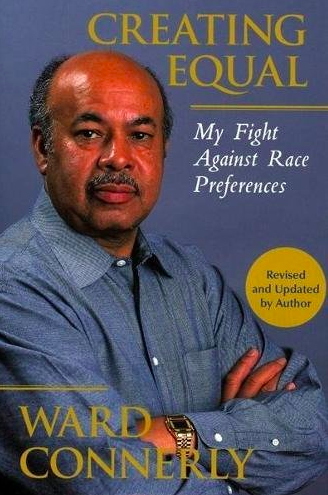
Ward Connerly, a member of the University of California Board of Regents, led the campaign behind Proposition 209, saying, “Affirmative action was meant to be temporary. It was meant to be a stronger dose of equal opportunity for individuals, and the prescription was intended to expire when the body politic had developed sufficient immunity to the virus of prejudice and discrimination.” He argued that affirmative action was no longer necessary because racial bias no longer existed.
HAHAHA! That’s a good one.
As we have all seen in recent months, with the deaths of George Floyd, Ahmaud Arbery, and Breonna Taylor, and the nationwide protests that have ensued, not to mention the white supremacists that have been emboldened by President Trump’s dog whistles… discrimination is alive and well in America, and it continues to disadvantage women and people of color.
With that in mind, state Assembly member Shirley Weber (D-79) introduced the legislation that would become Proposition 16 to repeal Prop 209, stating that “the ongoing [coronavirus] pandemic, as well as recent tragedies of police violence, is forcing Californians to acknowledge the deep-seated inequality and far-reaching institutional failures that show that your race and gender still matter.”
If Prop 16 passes, it doesn’t mean that government agencies could do whatever they want to tip the scales for women and minorities. Technically, Proposition 16 would merely remove the state ban on affirmative action from the California Constitution. Government agencies in California would still need to comply with federal laws regarding affirmative action, including a ban on strict racial quotas and racial point systems in higher education admissions. However, agencies could conduct individualized, holistic reviews that consider race as one of many factors, in the interest of educational diversity.
Supporters of Prop 16 include Governor Gavin Newsom, Senators Feinstein and Harris, Speaker Nancy Pelosi, and every Democratic Member of Congress representing CA, labor unions including the teachers and nurses, civil rights groups including the ACLU, NAACP, Equality California, Environmental Defense Fund, and, wait for it…the American Beverage Association? Yeah, I don’t get that last one either. But I think it shows the broad range of support this one has from the left… and beverage manufacturers. The campaign has raised more than $12 million, mostly from wealthy white liberal donors.
These proponents argue that Prop 16 levels the playing field for women- and minority-owned businesses who have lost out on public contracts because they don’t have the same connections or resources of those businesses owned by white men.
As for education, they argue that white wealthy Californians have an advantage in college admissions, because they have access to tutors and SAT prep classes, extra-curricular activities that cost money to participate in. And let’s not even talk about the recent college admissions scandal, which laid bare the preferential treatment some students have received through their families’ wealth or political or social connections.
Opponents of Prop 16 include Ward Connerly, Republican former Congressmen Tom Campbell and Darrell Issa, Republican members of the state legislature, conservative think tanks, and some Asian-American political organizations. They have only raised about a million dollars, which tells me their campaign isn’t well organized.
The opponents argue that affirmative action IS discrimination, and it hurts as many people as it helps. They also argue that our universities are already diverse, and that it is more appropriate for schools to consider socioeconomic factors rather than race; using affirmative action to help middle class Black and LatinX students would be patently unfair. Also: if UCs are able to use race as a factor in admissions, will they get lazy and use race as a proxy for socioeconomic status?
Interestingly, this measure has divided the Asian-American political world, with the liberal side supporting the measure, and the conservative side adamantly against it. The conservative Asian groups are focused on the education piece, arguing that if Prop 16 passes, Black and LatinX students will take the place of Asian-American students with stronger academic records, particularly at the top UCs.
As for public contracting, opponents of Prop 16 argue that introducing affirmative action will cost taxpayers “BILLIONS of dollars,” because the state will reject lowest qualified bidders and in order to choose higher-priced minority- and women-owned contractors. If saving taxpayer dollars is more important to you than equal opportunity, then you should vote no on 16. I personally think the state can do more to dismantle structural racism, even if it costs a few more dollars.

I think one of the reasons Prop 209 passed is because it was deceptively named the California Civil Rights Initiative, and was written in a confusing way to claim that it was ending discrimination. Its repeal is way overdue. If you hate racism and think it still exists, vote yes on Prop 16.
I agree with the LA Times Editorial Board, who wrote, “The death of George Floyd, yet another unarmed Black man killed by police, and the COVID-19 pandemic‘s disproportionate toll on Black and Latino Americans have been a wake-up call for this country. We must act to dismantle the racism baked into our institutions, and voting yes on Proposition 16 on Nov. 3 will help. … If we want to live in a country that better reflects our national narrative of equal opportunity, we have to build it. That means using the right tools, such as affirmative action. Vote yes on Proposition 16.”
Prop 17 – Restoring Voting Rights to Parolees – YES
As you probably know, I’m a big voting rights advocate. And yet, even I didn’t know that former felons couldn’t vote in California until after their parole was completed. It’s confusing because the law has changed a few times, and every state treats former convicts differently.
Currently, state law disqualifies people with felonies from voting until their imprisonment and parole are completed. Prop 17 would make it so that former felons could register to vote as soon as they are released from prison.
Here’s how the states compare to California:
- 2 states – Maine and Vermont – allow people in prison and on parole to vote
- 17 states prohibit people in prison from voting, but allow them to vote after they are released and are on parole
- California + 2 other states prohibit people from voting while in prison AND on parole
- 18 states disqualify people from voting who are in prison, on parole, or on probation
- 7 states prohibit people convicted of certain felonies from ever regaining the right to vote
- 3 states prohibit felons from ever regaining the right to vote, although their governors can issue orders to restore voting rights to individuals or groups
As you can see, California is somewhere in the middle with regard to restoring voting rights. The proponents of Prop 17 want to bring California closer to the progressive side of the voting rights spectrum.
Supporters of Prop 17 include Senator Kamala Harris, the California Democratic Party, the ACLU, and the League of Women Voters. They argue that the purpose of parole is to help reintegrate former convicts back into the mainstream. They are often working, raising families, and paying taxes, so they should have a say in government policies that impact their lives. Moreover, they argue, we as a state should encourage former prisoners to re-enter society and engage in civic life. Voting will help give these citizens a bigger stake in their communities, which will prevent future criminal behavior.
If you are wondering if this is about race, you are spot on. Proponents of Prop 17 argue that disallowing parolees to vote is rooted in a racist and punitive system that intentionally deprives marginalized people of their political power. I don’t have the time here to delve into the history of racism in our criminal justice system and I encourage you to watch the movie “13th” if you haven’t already. It’s a devastating examination of how the criminal justice system has been manipulated to deprive Black and Brown communities of their civil rights.
The opposition to Prop 17 includes Republican State Senator Jim Nielsen and the California Republican Party. They argue that parole is an essential component of a criminal sentence, and its purpose is to provide rehabilitation before a person’s full rights are earned and restored. Those who are on parole are still making full restitution for their crimes.
They also argue Prop 17 is a craven attempt by Democrats to give themselves a larger advantage in state elections, because African-Americans make up a disproportionate amount of imprisoned citizens, and they more often vote for Democrats. There is probably some truth to that; however, I would argue that it is because of the racial bias in the criminal justice system that so many African-Americans were unjustly deprived of their voting rights in the first place.
This one was an easy one for me. Vote yes.
Prop 18 – Give some 17 year olds the right to vote – YES
As my dad drove me to my first day of high school, he asked me, “Honey, what do you think you’ll do at school today?” I responded, “I’m going to be elected freshman class president.” Imagine Tracy Flick and Alex P. Keaton had a love child, and that was me. I was ambitious and into politics; I read the LA Times and listened to NPR. I debated with my parents about term limits and vegetarianism, and I couldn’t WAIT to register to vote.
Now, I realize that I was not your typical kid. The vast majority of teenagers aren’t interested in government and elections. But wouldn’t it be awesome if more of them were?
That’s the idea behind Prop 18, which will give 17 year olds the right to vote ONLY in California primary elections if they will turn 18 by the time of the general election. This is a small group of kids – 17 year olds whose birthdays fall between March and November in election years. If it passes, California will join 18 other states and Washington, D.C. in allowing this subset of 17-year-olds to vote in primaries.
Supporters include Governor Gavin Newsom, the California Democratic Party, and high school students everywhere. They argue that Prop 18 will give these teenagers the ability to fully engage in the November election, because participating in the sorting out of candidates in the primary will inform their eventual choice in November. Moreover, it is only reasonable that these youth be afforded the opportunity to shape the choices that appear on the general election ballot by participating in the primary.
Political candidates always struggle to get young voters excited about elections. According to research conducted by the California Civic Engagement Project, in the 2020 primary election in California, voters between 18 and 24 made up 14.5% of the population eligible to vote, yet only about 6% of those who actually voted in the election. The proponents of Prop 18 say that voting is habit-forming—once an individual votes in an election, they are more likely to do so again. This is why they argue that early involvement in the elections is an opportunity to empower California’s youngest voters and encourage them to become life-long participants in the electoral process.
The official opponents are the Election Integrity Project California and the Howard Jarvis Taxpayers Association, who argue that 17-year-olds are legal minors, living at home, and they will be unduly influenced by their parents and teachers. They won’t be expressing their own, independently thought-out views through their votes. Moreover, they point out, primary elections aren’t just about candidate races – tax increases and other ballot measures will be decided by these voters, who don’t have the life experience to make informed decisions. They point to drivers license restrictions on 16 and 17 year olds, whom the state has determined don’t have the adequate brain development to drive safely until their 18th birthday. “The agreed-upon age of reason, both statewide and nationally,” they say,”is 18.”
Besides, they argue, politically interested young people can be involved in the political process in all kinds of ways other than voting, including working on campaigns, helping candidates get out the vote, speaking their minds and educating themselves.
If you read between the lines, you can see that these groups are most worried that teenagers, most of whom don’t pay income taxes or property taxes, will serve as a solid pro-tax vote. They point to a 2019 proposed tax increase in Los Angeles that would have raised money for schools. LA Unified engaged in a campaign in favor of the measure, posting banners on campus, and handing out flyers and literature for students to take home, in an effort to influence students and their families.
You probably haven’t seen any ads for or against this measure. By September 19, the “yes” campaign had raised only $300k, and the “no” campaign had raised $0.
This measure is also about increasing turnout in primary elections, because the number of voters who participate in primaries is always exceedingly low. For example, in the 2016 Presidential election, 57% of eligible voters cast a ballot in the November Presidential election, whereas only 34% of eligible voters showed up for the March primary. If you work in politics, you know that primary voters also tend to be more conservative, older homeowners. So Prop 18 could help make a dent in this demographic balance.
Considering who I was at the age of 17, this one is an easy yes for me. If this measure gets more people in the habit of voting at a younger age, that is a very good thing.
Prop 19 – The Home Protection for Seniors, Severely Disabled, Families, and Victims of Wildfire or Natural Disasters Act – yes?
This is another wonky measure that applies to a narrow band of citizens. It kind of hurts my brain, so I’ll try not to waste much of your time on it.
Prop 19 proposes to change the rules for tax assessment transfers for a few categories of homeowners. In California, if you are over 55, have a severe disability, or you are a victim of natural disaster or hazardous waste contamination, you can buy another home and transfer your (Prop-13 protected) tax assessment to your new home, IF the new home has a lesser market value. This law is designed to protect people who are older, disabled, etc. and may not be able to pay a higher property tax when they choose to – or are forced to – relocate.
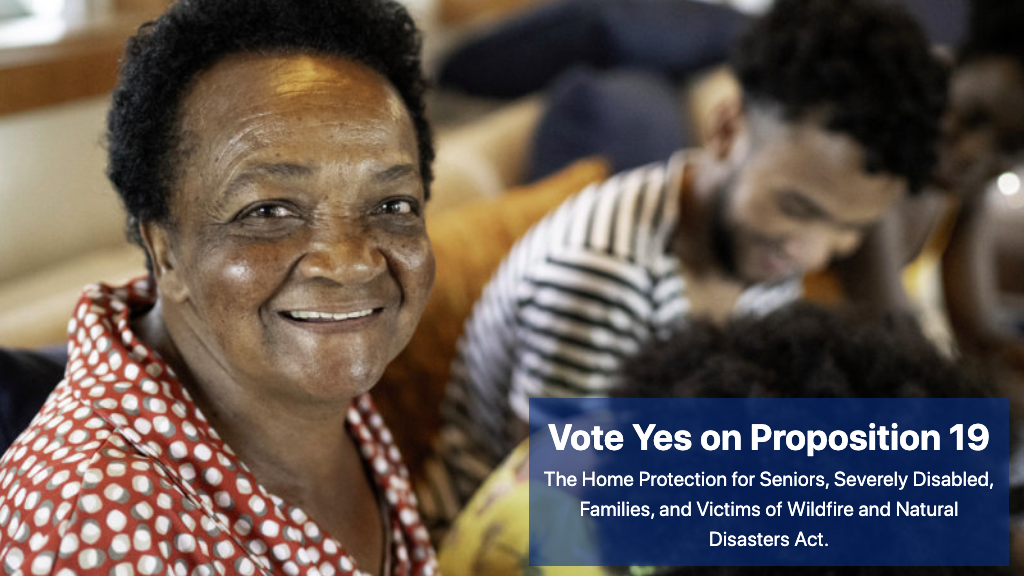
Prop 19 would:
(1) Allow these eligible homeowners to transfer their tax assessments anywhere within the state and allow tax assessments to be transferred to a more expensive home with an upward adjustment;
(2) Increase the number of times a senior or disabled person can transfer their tax assessment from one time to three times (disaster and contamination victims would continue to be allowed only one transfer);
(3) Eliminate an exemption that currently allows a parent or grandparent to transfer their primary home to a child or grandchild without the property’s tax assessment resetting to market value, IF the child or grandchild does not use the inherited property as their principal residence;
(4) Create the California Fire Response Fund (CFRF) and County Revenue Protection Fund (CRPF) out of the additional revenues and net savings resulting from the ballot measure. The County Revenue Protection Fund would be used to reimburse counties for revenue losses related to Prop 19’s property tax changes. The Fire Response Fund would be used to fund fire suppression staffing and full-time station-based personnel.
I gotta say, that last part is genius. Who doesn’t want to make sure Grandma and wildfire victims aren’t priced out of a new home, WHILE ALSO raising money for local governments AND firefighters?? It’s pandering, for sure. But very clever.
Anyhoo, supporters include Governor Newsom, State Controller Betty Yee , State Treasurer Fiona Ma, the California Democratic Party, all the labor unions including teachers and nurses, civil rights orgs like the NAACP, Congress of California Seniors (of course), California Statewide Law Enforcement Association, California Association of Realtors, firefighters, and the California Hispanic Chambers of Commerce.
They argue that Prop 19 provides housing relief for millions of seniors, many feeling trapped in homes they can’t maintain, with too many stairs, located too far from family or medical care, and made worse by coronavirus health risks. It also closes a loophole that allows wealthy homeowners to transfer property tax assessments on their vacation homes when giving them to their children, who have no intention to live there. And it helps wildfire victims move to a replacement home anywhere in the state.
Proponents also claim it will generate hundreds of millions in revenue for schools and local governments from senior home sales and from closing the loopholes on inherited properties.
The only official opponent I could find is the Howard Jarvis Taxpayers Association, which is the group that hates all taxes and would prefer that property taxes were eliminated entirely. They argue that Prop 19 chips away at the taxpayer protections in Prop 13 (1978). It’s true, it does, but it is really only taking away the right of a parent or grandparent from transferring a low tax assessment when giving a home to a family member, who then doesn’t intend to live there.
And um, wow – the “yes” campaign has raised $36 million, and opposition has raised only about $45,000. Talk about lopsided.
Here’s an interesting twist, though: every newspaper is against it. The LA Times, SF Chronicle, Mercury News, Orange County Register, Bakersfield Californian… Here’s what they say:
“[It’s] an attempt by real estate interests to accomplish what they couldn’t accomplish two years ago by pandering to the state’s firefighters union.” Orange County Register Editorial Board
“Prop. 19 merely plugs one hole in the state’s porous property tax laws while creating another. It’s time for holistic reform that simplifies the system and makes it more equitable. This isn’t it. […]The real reform would be to abolish the tax-transfer program, not expand it.” Mercury News & East Bay Times Editorial Boards
“[Prop 19] favors one narrow segment of the tax-paying public but does nothing for the rest of the state’s home buyers. The measure shows the convoluted extremes that California’s tangled property tax system produces. Making it worse isn’t the answer.” San Francisco Chronicle Editorial Board
This was a tough call for me, but on balance I think I’m a “yes.” I get really mad when I see super detailed measures on the ballot that frankly the average citizen has no business weighing in on. It infuriates me that millions of Californians have to become experts in tax law every November in order to make an educated vote. I also agree with the newspapers that this measure seems super convoluted, and that we need to overhaul our property tax system entirely to make sure that the folks who need protection will get it without going to the voters every time.
However, the only way to get this reform done is by ballot measure because Prop 19 would change pieces of Prop 13 tax protections, and ballot measures can only be amended by other ballot measures. Ugh. Until we are ready to change the way we make laws in California, I will hold my nose and vote for reforms like this one.
Prop 20 – Restrict parole for certain non-violent offenders – NO!!!!
This was an easy one for me. Prop 20 is a “tough on crime” bill that was put on the ballot by prison guards, and it is widely supported by law enforcement and the Republican Party. It is opposed by civil rights groups, Democrats, voting rights groups, crime victims’ advocates, and even a few District Attorneys. That’s all I need to know.
OK, fine, let’s get into the details.
Prop 20 will impose new restrictions on the state’s parole program for non-violent offenders who have completed the full term for their primary offense. The measure seeks to roll back reforms enacted in the last decade found in these three laws, two of which you probably voted on:
Assembly Bill 109 (2011) transferred certain non-serious and non-violent felons from state prison to county jails. This reform was known as “realignment,” and was brought about because of overcrowding in California prisons, which the U.S. Supreme Court ruled was so inhumane as to be cruel and unusual punishment. (!!)
Proposition 47 (2014) reclassified some non-serious and non-violent crimes from felonies to misdemeanors, and allowed for the re-sentencing of about 10,000 inmates who had previously been convicted of those specific crimes. Prop 47 also increased the threshold for felony theft to $950, so that every theft under $950 would be considered a misdemeanor. Note: Retailers were mad about this change, because police don’t prioritize investigating and charging misdemeanors, so increasing the threshold would mean a lot more shoplifting cases wouldn’t get prosecuted.
Proposition 57 (2016) expanded credits for good behavior and expanded parole for felons convicted of non-serious and non-violent crimes. It allowed judges, not prosecutors, to decide whether to charge juveniles as adults. Using numbers from early 2016, there were about 25,000 nonviolent state felons that could seek early release and parole under Proposition 57.

These laws each had a dramatic impact on the number of people sent to prison and the length of prison terms for non-violent offenders. The graph below illustrates the state’s imprisonment rate from 1995 through 2019 and the impact of these three laws. The orange bars – from left to right – represent the enactments of AB 109, Prop 47, and Prop 57.
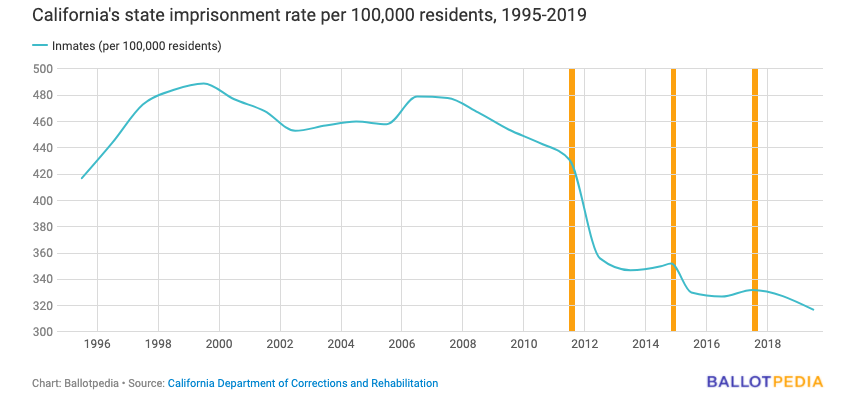
Pretty amazing, no? It gives me goosebumps.
I look at that chart and I see a fairer criminal justice system and crimes that are being penalized more humanely. Prison guards and law enforcement unions look at that chart and they see prison revenues dropping and criminals roaming the streets. Which is why they proposed Prop 20.
Prop 20 will roll back Prop 57 by expanding the list of offenses that disqualify an inmate from parole, keeping non-violent felons in prison longer. You heard that right.
It would change the threshold for some theft crimes from $950 down to $250!! Yep, they want to send MORE people to prison for longer terms, for stealing $250 worth of goods. Just thought I’d mention that one of the most successful musicals of all time was premised on the cruelty of sending a man to prison for five years for stealing a loaf of bread. But I digress.
The measure would make specific types of theft and fraud crimes, including firearm theft, vehicle theft, and unlawful use of a credit card, chargeable as felonies, rather than automatic misdemeanors.
And finally, Prop 20 would also require people convicted of certain misdemeanors to submit DNA samples for a state database. Given how useful genetic tracing has become in solving crimes, I understand why law enforcement wants to get the DNA of everyone who comes into contact with the criminal justice system. But I also totally get the privacy concerns, especially given that people of color have more interactions with police because of systemic racism.

As if all that weren’t enough, the state’s legislative analyst says that Prop 20 will cost taxpayers tens of millions of dollars annually in increased state and local correctional costs, as well as a few million dollars annually for probation bureaucracy and felony theft filings, and processing the additional DNA samples.
Supporters of Prop 20 include the Republican Party of California, some Republican elected officials, prison guards and other law enforcement unions. Albertson’s Grocery chain is an official supporter too, because of the change in the threshold for retail theft.
Proponents argue that the definition of “nonviolent crime” needs to change, because sex trafficking, child endangerment and hate crimes are considered nonviolent. They claim that serial theft rates are up in California since Prop 47 reduced penalties for theft in 2014. They are right that shoplifting is on the rise, and that it isn’t prosecuted enough, but I doubt that’s because of the dollar threshold in state law. The proponents haven’t convinced me that stronger criminal penalties will stop car break-ins and home burglaries. To me, the answer is that cops should investigate and charge theft regardless of the criminal penalties associated with them.
The opposition to Prop 20 includes former Governor Jerry Brown, the California Democratic Party, some wealthy liberals who bankrolled the “no” campaign, the ACLU, the California League of Conversation Voters, crime victims’ organizations, Public Defenders, League of Women Voters, and a few liberal District Attorneys.
They argue that California already has lengthy sentences and strict punishment for serious and violent crime. They say the proponents of Prop. 20 are trying to scare you into rolling back effective criminal justice reforms and spending tens of millions of your taxpayer dollars on prisons. Prop 20 cuts rehabilitation programs, which are proven to help make prisoners productive members of society. Governor Brown said, “Prop. 20 wants to basically eliminate all hope in the prison. Men who have given decades will have no chance to earn their way back to society. And that’s fundamental to any kind of criminal justice system that while you impose punishment, you make room for redemption and rehabilitation in the prison.”
All the newspapers oppose Prop 20, even the ones from conservative Bakersfield and Orange County. The San Francisco Chronicle Editorial Board wrote, “Various studies have shown these dramatic drops in incarceration have not contributed to a significant increase in crime, which continues to stabilize at 1960s levels. It’s instructive that one of the big early funders of Proposition 20 was the prison guards, with boosts from other law enforcement unions. Voters who were fed up with the waste of money and waste of lives — and racial disparities — rejected that retrograde mindset with the passages of Props. 47 and 57. Vote no on Prop. 20.”
Prop 21 – Expands local government authority over rent control – Yes?
Why is it that every single measure on this ballot requires a history lesson? Ugh. You have no idea how much work this voter guide is making me do.
Let’s go back to 1995. The Costa-Hawkins Rental Housing Act was approved by a bi-partisan legislature and signed into law by Republican Governor Pete Wilson. Costa-Hawkins provides that cities cannot enact rent control on housing that was built after February 1, 1995, or on single housing units such as single family homes, condos and townhouses. It also provides for “vacancy decontrol,” meaning, landlords have a right to increase rent prices to market rates after a tenant moves out.
As California’s housing crisis worsened over the years, many attempts have been made to amend Costa-Hawkins both in the state legislature and at the ballot box, in order to give local governments more power to protect tenants from rising rents.
In 2018, California voters rejected Prop 10, which would have repealed Costa-Hawkins, and allowed local governments to adopt rent control on any type of rental housing. The proponents of Prop 10 learned their lesson that year, namely that voters weren’t interested a wholesale repeal, so they came back with a more modest proposal in the form of this year’s Prop 21.
Prop 21 would replace Costa-Hawkins and allow local governments to expand rent control to any housing unit (including single family homes and condos), except those that were built in the last 15 years. It also exempts property from rent control where the landlord only owns one or two buildings.
The most controversial piece of Prop 21 is that it would allow landlords to increase rent by only 15 percent during the first three years following a vacancy (a.k.a. “vacancy control”). Under Costa-Hawkins, landlords can increase the rent to market price after a tenant vacates the unit. Landlords REALLY don’t like this provision because it limits the amount that landlords can raise the rent, even after a tenant vacates who has been in a rent-controlled unit for decades. I agree it’s kinda mean.
Prop 21 has garnered nationwide attention, and has earned the support of Senators Bernie Sanders, Democratic Socialists of America, the ACLU, Congresswoman Maxine Waters, the California Democratic Party, SEIU, the California Nurses Association, and Dolores Huerta, co-founder of the United Farm Workers. Michael Weinstein of the AIDS Healthcare Foundation, which sponsored Prop 10 in 2018, also sponsored Prop 21.
Supporters say that the rent is too damn high. California’s housing crisis has reached epic proportions, and reform is needed to protect renters from financial ruin. Small businesses are being squeezed because so much of people’s income is being spent on rent. Skyrocketing rents have pushed more than 150,000 Californians into homelessness. COVID-19 has left millions of workers without jobs and worried about their ability to stay in their homes.
Senator Sanders argues,”This initiative will allow California cities to pass sensible limits on rent increases and protect families, seniors and veterans from skyrocketing rents. I was born and raised in a three-and-a-half room rent-controlled apartment in Brooklyn, New York. That most minimal form of economic security was crucial for our family, but today that type of economic security does not exist for millions of Americans. That has got to change.”
Prop 21 exempts landlords who own only one or two buildings, thus protecting homeowners who are not in the rental business. Proponents also claim it is fair to landlords by guaranteeing them a (small) profit.
In a rare split from the rest of his party, Governor Gavin Newsom opposes the bill. He is joined by senior advocates, the Republican Party of California, building trade unions, real estate developers and landlord groups, chambers of commerce, and the Howard Jarvis Taxpayers Association. Newsom says, “Proposition 21, like Proposition 10 before it, runs the all-too-real risk of discouraging availability of affordable housing in our state.” Senior advocates say that Prop 21 doesn’t go far enough to protect senior renters and senior homeowners who rent out their homes to fund their retirement.
The building trades are against it because they say that expanding rent control means that private sector builders will be less motivated to build new affordable housing units, and landlords of rent-controlled units won’t spend the money on renovating their buildings. They argue that if we want to lower rents, we should focus instead on changing strict permitting processes and building codes, which will lead to building more housing.
It’s true that rent control often leads to rental housing stock deteriorating faster, because landlords don’t put much money into building maintenance, since the cost isn’t always covered by the rent they make. And it’s also true that developers are less likely to build housing in cities where they won’t be able to recoup their costs. But I think the 15-year rolling exemption mitigates that concern – they can charge whatever they want for the first 15 years a building is occupied.
Why is this on the ballot at all? Friends in the state legislature tell me that there have been multiple attempts to strike deals to reform Costa-Hawkins. My sense is that it will never get changed unless it’s at the ballot box.
Interestingly, only one major paper, the LA Times, is in favor of Prop 21. The rest are against it. The LA Times wrote, “Ultimately, the solution to California’s housing crisis is to build more housing, especially affordable housing. That will take reforming zoning codes and regulations that make it impossible to build apartments and townhomes in many communities across the state. It will require reducing onerous fees and bureaucratic hurdles that layer on costs and push up the price of new homes. This is vital work to make California more affordable, but it will take years to construct enough homes to bring down prices. Until then, rent control can be a helpful tool to provide housing stability.”
On the “no” side, the SF Chronicle wrote, “While researchers have found that rent control can confer substantial benefits on affected tenants, it does so at the expense not only of property owners but also of other tenants. And those benefits are not reliably distributed to those who need them most. The greatest cost, meanwhile, will be to a housing market that can ill afford it, further restricting supply and inflating prices. Californians should vote no on Prop. 21 or risk aggravating the crisis it purports to address.”
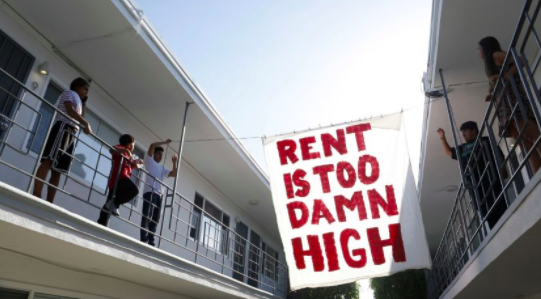
I’ve gone back and forth on this one, but I think I’m a “yes” vote. Really, the debate here comes down to whether you think more money should go to landlords or be kept in renters’ pockets. If you’re a landlord, you probably hate this bill. If you’re a tenant, you probably love it. If you’re a homeowner in a neighborhood with lots of units that will become rent-controlled under Prop 21, you might vote no because the buildings around you won’t be maintained as well and their curb appeal could drag down the value of your home. Or, you could think about the bigger picture and see how rising housing costs are ravaging communities across the state, especially in the COVID era. Vote your conscience on this one.
Prop 22 – Employment status of gig economy drivers – YES!
I’m so passionate about Prop 22 that I’ve written a separate post about it. See my thorough analysis here.
Prop 23 – Regulation of Kidney Dialysis Clinics – NO!!!!
I can’t believe it, ANOTHER KIDNEY DIALYSIS BALLOT MEASURE?! You may remember Prop 8 from 2018, which asked voters to limit the profits of kidney dialysis clinics. I went “no” on that one because I didn’t think it was the kind of law that should be decided by the voters. And it was clearly a revenge play by SEIU-UHW West, the labor union that was in a fight with the state’s two largest dialysis businesses DaVita and Fresenius Medical Care. I feel that same way about Prop 23.
Here we are again. Same story, different day.
SEIU-West has been trying to organize the kidney dialysis clinics for years, and they claim that the big greedy dialysis clinic owners aren’t doing right by their patients or staff and they want better staff-to-patient ratios. The union put Prop 23 on the ballot because they tried getting a law passed in the legislature, but they couldn’t get the votes.
If it passes, Prop 23 would place new requirements on kidney dialysis clinics in the state, including:
- At least one licensed physician must be on site during treatment;
- Clinics must report dialysis-related infection data to state and federal governments;
- Clinics may not close or reduce services without approval from the state; and
- Clinics may not discriminate against patients based on the source of payment for care.
Supporters of Prop 23 include SEIU-West, the California Democratic Party, and some Democratic legislators. They argue that Prop 23 makes “common sense” improvements to the way that dialysis clinics operate. It’s all about the patients. Mm hmm.
As to the doctor requirement, they argue that dialysis is a dangerous procedure, and if something goes wrong, a doctor or highly trained nurse should be nearby. As for the reporting requirement, they say that they want problems to be identified and solved to protect patients, implying that the clinics aren’t meeting patient needs. Finally, they say that the clinics are critical to patient survival so they shouldn’t be allowed to close or reduce their services, even if this measure makes their costs go up.
I researched this measure pretty thoroughly, and found that the “yes” campaign hasn’t provided any data that back up their claims that these reforms are needed. Check out their website, it’s pretty thin.
Opponents of Prop 23 include the dialysis clinic owners, the California Republican Party, retired veterans groups, the California Nurses Association, the California Medical Association, the California NAACP. All major newspapers in California oppose the bill as well.
They argue that Prop 23 jeopardizes access to care by imposing unnecessary bureaucratic mandates, making it harder for the clinics to do their jobs well. They worry that Prop 23 would increase state healthcare costs by an estimated $320 million annually, and force some clinics to close, pushing patients into emergency rooms for treatment.
For the on-site physician requirement, they argue that every dialysis patient is already under the care of their personal kidney physician and dialysis treatments are administered by specially trained and experienced dialysis nurses and technicians. Prop 23 would make the state’s physician shortage worse by taking physicians away from other hospitals and clinics where they are more needed.
Prop 23’s restrictions on clinics are a bit triggering for me. For most of my career, I’ve been closely watching all the restrictions religious conservatives have succeeded in placing on abortion clinics around the country, and the rules proposed in Prop 23 are eerily familiar. The abortion clinic rules have never been about quality of care, they have always been about making it harder for the clinics to keep their doors open. I suspect the same is true here. Why else would a non-healthcare related labor union put a measure on the ballot with healthcare-related implications? Seems very fishy. ESPECIALLY since the healthcare advocacy organizations (see: California Nurses Association, California Medical Association) oppose the bill.
I’ll conclude by quoting my 2018 analysis of Prop 8, because the same reasoning applies here:
“As you know, a ballot measure can only be amended or repealed by another ballot measure, and that’s no way to govern a state. Super detailed, highly technical laws should NEVER be passed by ballot measure because they usually need adjusting over time, and that can’t happen if they are approved by voters. Moreover, if this measure passes, and dialysis clinics start going out of business, it jeopardizes access to care for patients in California who need dialysis treatments to stay alive. SEIU should make its case in court, or with the legislature, or the National Labor Relations Board, anywhere but the ballot box.”
Vote NO.
Prop 24 – Amending Consumer Privacy Laws – NO
Another tough call. Another complicated measure. And yet another history lesson.
In June 2018, Governor Brown signed the California Consumer Privacy Act (CCPA), which made sweeping changes to how businesses store and use consumers’ personal information. Under the CCPA, consumers are allowed to:
- request that a business disclose to the consumer the personal information that has been collected about the consumer and the commercial purpose of the information collected;
- request that a business delete the consumer’s personal information;
- request that a business not sell the consumer’s personal information to third parties.
Prop 24 would expand or amend the provisions of the CCPA to remove the ability of businesses to fix violations before being penalized for violations. If it passes, the measure would require businesses to:
- not share a consumer’s personal information upon the consumer’s request;
- provide consumers with an opt-out option for having their sensitive personal information, as defined in law, used or disclosed for advertising or marketing;
- obtain permission before collecting data from consumers who are younger than 16, and triples maximum penalties for violations concerning consumers under age 16;
- obtain permission from a parent or guardian before collecting data from consumers who are younger than 13;
- correct a consumer’s inaccurate personal information upon the consumer’s request; and
- not retain a consumer’s personal information for longer than reasonably necessary.
Prop 24 also would establish a new government agency to enforce and implement consumer privacy laws, and impose administrative fines.
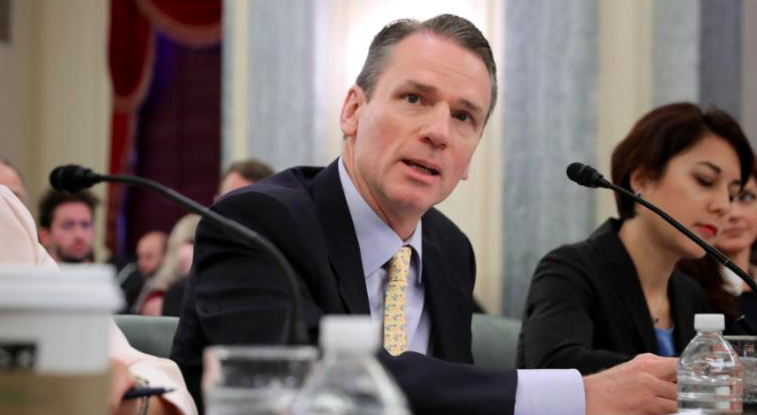
Photo by Chip Somodevilla/Getty Images
It was placed on the ballot by Alastair Mactaggart, a San Francisco-based real estate developer, who was the original proponent of the CCPA. He described the CCPA as a “great baseline. But I think there are additional rights that Californians deserve.” By placing it on the ballot to affirm the protections of the CCPA, he is essentially setting the CCPA in stone, because a ballot measure is much harder to repeal or amend. “The only thing I want to make sure is they can’t undo the act,” Mactaggart told the San Francisco Chronicle, “There is basically unlimited resources on one side of the fight. If you don’t do anything, they will win eventually.”
Supporters of Prop 24 include former Presidential candidate Andrew Yang, Congressman Ro Khanna, some Democratic members of the state legislature, State Controller Betty Yee, the firefighters union and the building trades, NAACP. They argue that California consumers want more control over their personal information, and they want a well-staffed public agency watching over the private companies. They point to the “relentless assault” by tech lobbyists that made it necessary to put this measure on the ballot.

Opposition to Prop 24 comes from all sides. It’s a mighty strange coalition of the Republican Party and civil rights organizations, including the ACLU, consumer rights groups, Dolores Huerta of the United Farm Workers, California nurses union, and the League of Women Voters.
Consumer groups say Prop 24 is confusing, and it’s full of contradictions and giveaways to Big Tech. They are upset that Prop 24 doesn’t fix a provision in the CCPA that allows businesses to charge a privacy fee, and downgrade service to those who cannot or will not pay the fee. They also point to loopholes that allow commercial credit agencies and data corporations to sell the personal information of small-business owners, hurting minority groups the most.
The civil rights groups seem most interested in the provision of Prop 24 that allows the continued use of “neighborhood scores” in which lenders use a person’s race or the racial make-up of a neighborhood as a rationale for either refusing to lend to its residents or charging much higher interest rates.
Interestingly, the Electronic Frontier Foundation (EFF) – the nation’s most respected privacy rights organization – issued a statement taking no position on Proposition 24, describing it as “a mixed bag of partial steps backwards and forwards.”
There is so much behind-the-scenes drama here, it sounds to me like the proposal behind Prop 24 is still a work in progress. And that’s exactly why it shouldn’t be on the ballot, where it could be set in stone for generations. Ballot measures can only be amended or repealed by the voters, which is why proposals like this one that include so much detailed nuance should be decided by the legislature, where it can be hashed out and amended over time.
As the Mercury News & East Bay Times Editorial Boards write,”It’s simply the wrong way to try to go about settling an immensely complex issue. Vote no on Proposition 24.”
Prop 25 – Eliminate cash bail – YES!
How much experience do you have with the cash bail system? Actually, I don’t want to know.
Here’s the deal: you get arrested, the judge sets a dollar amount that you have to pay to get out of jail while you await trial. It’s usually a huge amount of money, and it’s supposed to be based on your perceived threat to public safety or flight risk. You pay the cash bond, and then you get the money back after your trial is completed, no matter the outcome. OR – if you don’t have the cash for bail (and most people don’t), you either stay in jail, or you pay a bail bond company to pay the bond for you, for a 10% non-refundable fee.
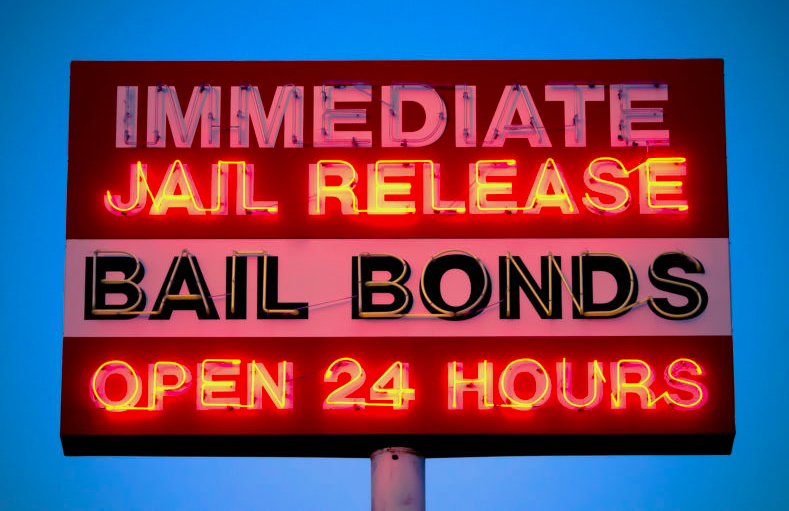
The criticism of the bail system is that judges often make bail determinations based on subjective and often discriminatory factors. Bail bond companies are seen as predatory, since their fee is high, their overhead is minimal, and the accused don’t have an alternative except to stay in jail.
For these reasons, the state legislature passed a law (SB 10) in 2018 that eliminated the cash bail system, making California the first state to do so. The law would replace bail with a system for pretrial release based on a computer algorithm to determine the public safety or flight risk of the accused. This risk assessment would determine whether a detained suspect should be granted pretrial release and under what conditions, categorizing them as low risk, medium risk, or high risk. Defendants determined to be a low risk of failing to appear in court and a low risk to public safety would be released from jail, while those deemed a high risk would remain in jail, with a chance to argue for their release before a judge. Those deemed a medium risk could be released or detained, depending on the local court’s rules. All misdemeanor suspects, with a few exceptions, would be automatically released without a risk assessment. The bill required that the “[risk assessment] tools shall be demonstrated by scientific research to be accurate and reliable.”
Governor Brown signed SB 10 into law in August 2018, and the bail bond companies filed a referendum to overturn it the very next day. Implementation of SB 10 was put on hold pending the outcome of the referendum, which ultimately became Prop 25. If voters approve Prop 25, then SB 10 will go into effect. If they reject Prop 25, then SB 10 will be overturned.
Supporters also say that eliminating bail will lead to a more equitable justice system. They point to defendants who plead guilty even when they are innocent, just because they can’t afford bail and they don’t want to languish in jail, resulting in a permanent criminal record.
Finally, they point to the predatory nature of the bail bond companies. The current bail system merely operates to transfer hundreds of millions of dollars from low-income communities to the lucrative bail-bond industry. And this measure is evidence that the industry won’t go quietly.
Supporters of Prop 25 include Governor Newsom and Democratic lawmakers, the California Democratic Party, the teachers union, the California Medical Association, and the League of Women Voters. They make the case that the bail system s unfair and unsafe, because the rich can go free, even when accused of serious violent crimes, while the poor stay in jail even when innocent or accused of low-level non-violent offenses. By contrast, the computer algorithm replacing bail is based on safety and fairness, and is supposed to be backed up by scientific evidence.
Proponents say that Proposition 25 makes our communities safer by ensuring jail space is reserved for those who are actually dangerous and shouldn’t be released, instead of the poor. They claim it costs the state $5 million per day to house poor people accused of minor crimes who can’t afford their bail.
All the newspapers went yes on 25, even the conservative Orange County Register, who says, “The problem with the current system is that people who are innocent can suffer life-destroying consequences if they are arrested and eligible for bail, but lack the financial resources to pay thousands of dollars for a bail bond. While locked up for months before a trial, people can lose their jobs, fall behind on payments for housing and plunge into an even deeper financial hole. Those who are able to borrow money for a bail bond can suffer ongoing harm from the added debt burden. Poverty is not a crime, but for people who are arrested and can’t afford bail, it is punished as if it were.”
In addition to the bail bond companies, the opposition includes the Republican Party of California; the Black, Hispanic and Asian Pacific Chambers of Commerce; crime victims groups, the Howard Jarvis Taxpayers Association, and the NAACP. Wait, what?
That’s right, the NAACP and other civil rights groups oppose Prop 25 because they say that that the computer algorithm that will replace the bail system is even more racially-biased than judges are. They point to the use of predictive modeling by insurance companies to set insurance premiums, which have been proven to discriminate against the poor, minorities and people who live in low income neighborhoods. Interestingly, the ACLU opposed SB 10 when it was before the legislature, but they have declined to oppose Prop 25 because they don’t want to align themselves with the bail bond companies. ACLU of North California executive director Abdi Soltani stated, “Make no mistake, the bail industry is not interested in equal justice or equal protection under the law, they are seeking to turn back the clock to protect their bottom line.”
There are also law enforcement groups who argue, incredibly, that the bail system is fine the way it is and eliminating bail will make it harder for law enforcement to do their jobs. They say that bail ensures that people accused of crimes will appear for trial and it holds defendants accountable if they don’t.
The bail bond companies are in a fight for their life. They put Prop 25 on the ballot to buy themselves another year before their industry goes extinct. And if – God forbid – they win this one, I fear it will be decades before we can take another crack at eliminating the cash bail system.
I’m sensitive to the criticism from the left, that the algorithm that will replace bail is racially biased. But I don’t think we should throw the baby out with the bath water. The cash bail system is beyond inhumane, and we have to take a stab at replacing it. I am hopeful that the state legislature will keep the pressure on to improve the algorithms used to predict public safety risk. Vote yes!
Thanks for reading! If you found this voter guide useful, please throw a few pennies in the jar to help me cover my costs. And please forward this link to your friends and frenemies, or post it on social media. Sharing is caring. Thank you!





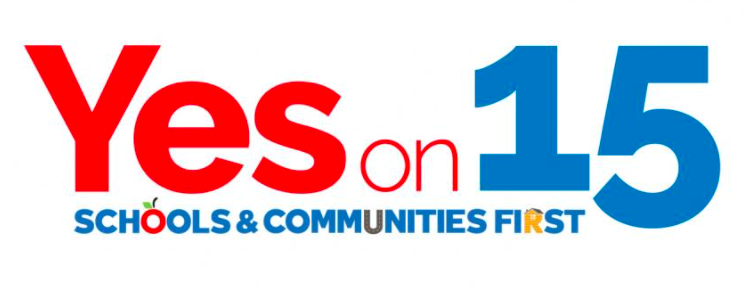
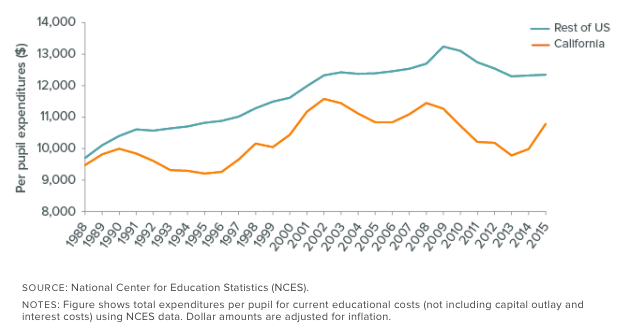
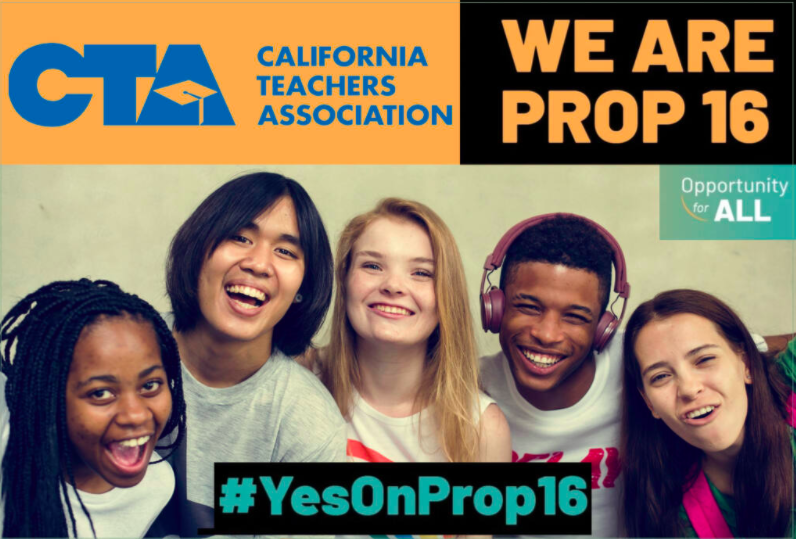
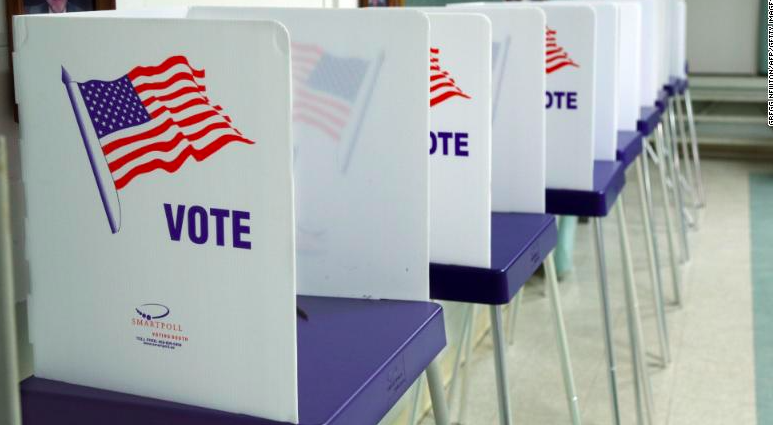






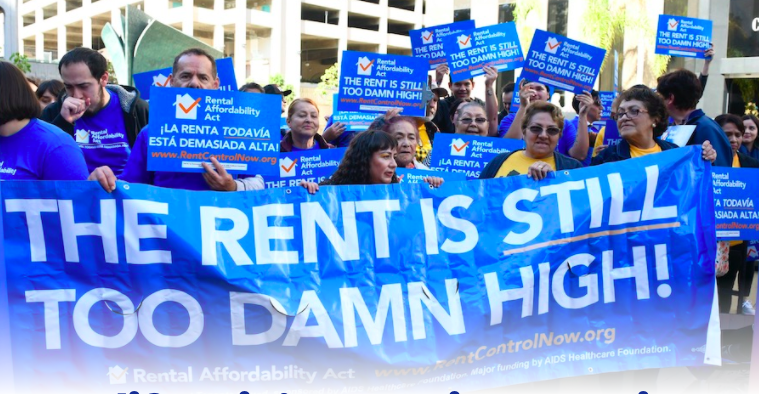
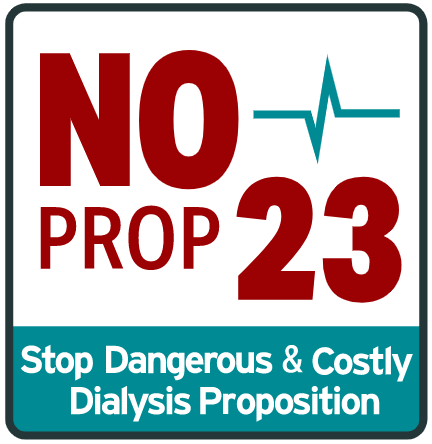
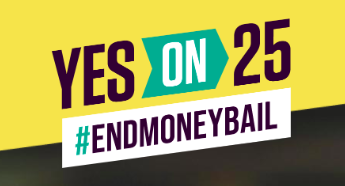





 Fiona Ma is a CPA, a former member and chair of the state Board of Equalization, and she has the endorsement of
Fiona Ma is a CPA, a former member and chair of the state Board of Equalization, and she has the endorsement of  This race is between two women: Supervisor Malia Cohen from San Francisco, and State Senator Cathleen Galgiani from Stockton. Senator Galgiani chairs the Senate Agriculture Committee, and she is a moderate Central Valley Democrat. She comes from an agricultural region, and her perspective and her campaign promises are pro-farming and pro-business.
This race is between two women: Supervisor Malia Cohen from San Francisco, and State Senator Cathleen Galgiani from Stockton. Senator Galgiani chairs the Senate Agriculture Committee, and she is a moderate Central Valley Democrat. She comes from an agricultural region, and her perspective and her campaign promises are pro-farming and pro-business.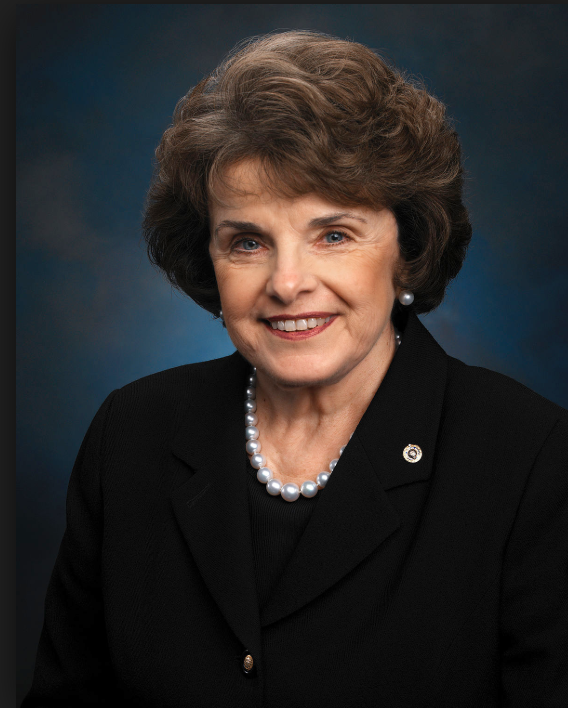
 California is facing some very serious water shortages in its future, and capturing rainwater is one way homeowners are going to start solving the problem. Prop 72 is a Constitutional amendment that will make it easier for Californians to install rainwater capture systems by eliminating a tax penalty for their installation. (Or rather, by enabling the state legislature to exempt them from taxes, same same). All of the major newspapers support Prop 72, as well as the Democratic Party and many major environmental organizations. There is no formal opposition.
California is facing some very serious water shortages in its future, and capturing rainwater is one way homeowners are going to start solving the problem. Prop 72 is a Constitutional amendment that will make it easier for Californians to install rainwater capture systems by eliminating a tax penalty for their installation. (Or rather, by enabling the state legislature to exempt them from taxes, same same). All of the major newspapers support Prop 72, as well as the Democratic Party and many major environmental organizations. There is no formal opposition.









